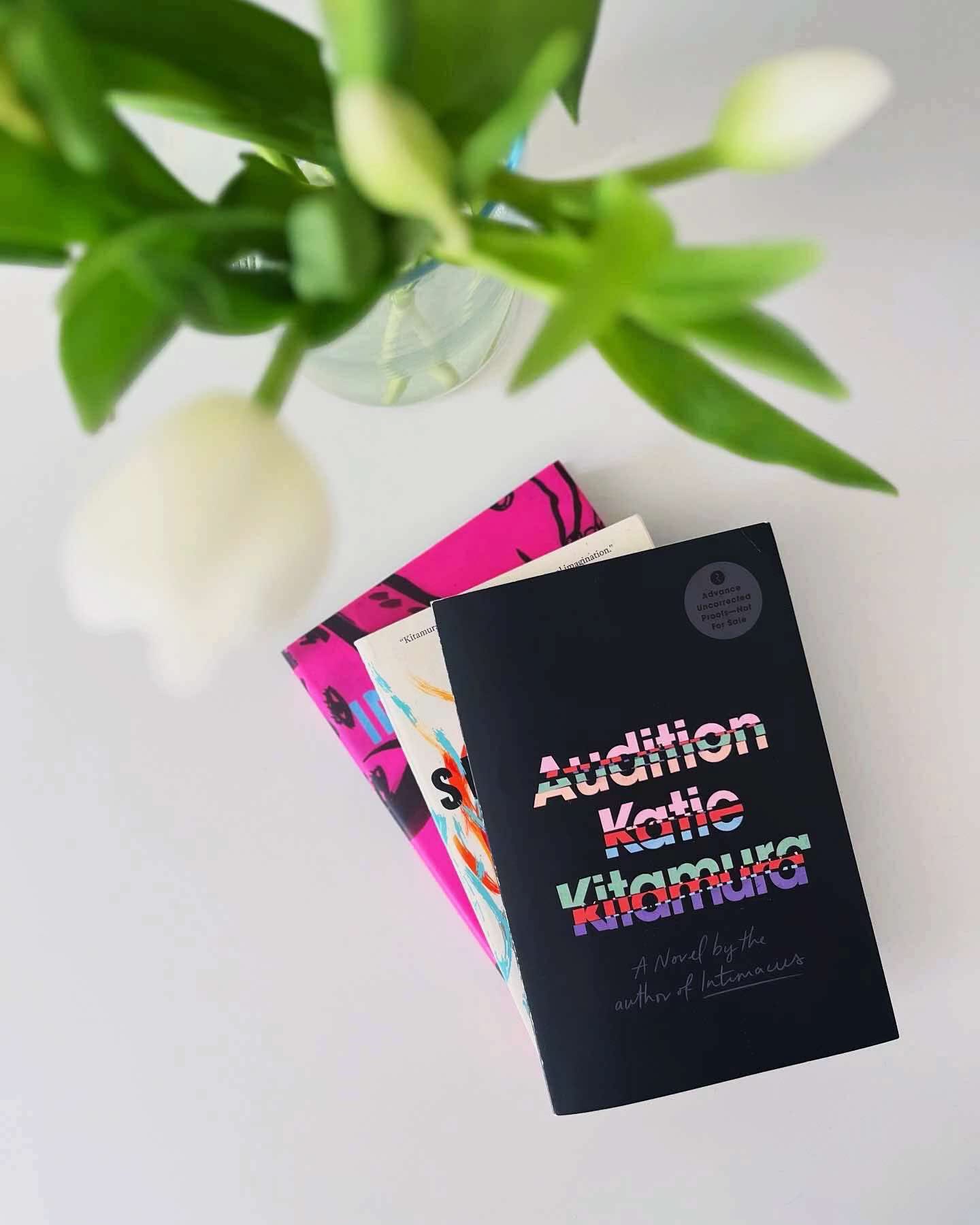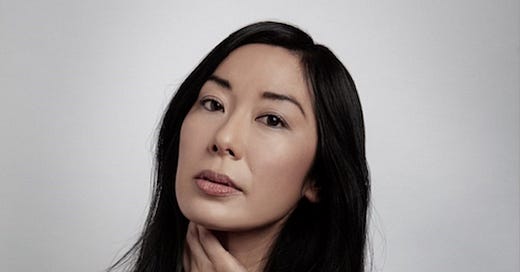An interview with Katie Kitamura
"I loved the idea that in a single moment, everything you know about yourself and who you are in the world could be upended."
Chances are you already know too much about Katie Kitamura’s Audition.
It is a novel that is best read without any prior knowledge. A magic trick, a snake shedding its skin, a desert road mirage. It is mysterious, unnerving, and it needs no introduction.
A woman and a stranger. A mother and son. What do they want from one another? Are they strangers, or family? And what is the difference? What was a family if not a shared delusion, a mutual construction?—this, the axis around which the novel spins.
Kitamura’s exacting prose disarms and ravishes its reader. It was an honour to delve deeper into the writing of this, her fifth novel.
How did the idea for Audition arrive, and what excited you most when you sat down to write?
Many years ago – perhaps as long as a decade ago – I saw a headline that read, “A stranger told me he was my son.” I didn’t read the article, because I already knew at that point that I wanted to write a novel stemming from this premise. I loved the idea that in a single moment, everything you know about yourself and who you are in the world could be upended.
But I was also interested in the illogical nature of the headline. The two terms – “a stranger” and “my son” seemed diametrically opposed, even mutually exclusive. I remember I was trying to crack the book open, and I repeated the headline to a friend, puzzling over the mystery of that contradiction. And she said, But that’s just a description of parenting. Every time my son comes home from college, it’s like a stranger has returned.
After that conversation with my friend, I had a sense of what I wanted to try to achieve in the novel. I wanted to write about how many universal experiences – of love, of motherhood, of marriage – can feel like two mutually exclusive things at the time.
“When I’m in the space of the page, my antennae are highly attuned.”
—Katie Kitamura
Can you share how it felt living with and developing these characters, coming to know them as you wrote?
I loved writing this book. It feels strange to say that, because on the one hand it’s probably irrelevant to the reader, whether or not the writer enjoyed writing the book they’re reading. But I loved not only the world of the novel, but also the construction of it. I felt that I was taking risks, of a kind that I hadn’t taken before, and that was exhilarating.
What was the first piece of literature that captivated you—when did you know that writing fiction was something you wanted to pursue?
I don’t remember when I decided to write fiction, but I do know that the desire to write fiction emerged out of a strong habit of reading. Reading has always been the lens through which I see and experience the world. Much of what I think I’ve experienced, I’ve only read in a book.
Where do you write—or where do you most enjoy writing?
I try to write at my desk on a regular schedule. In reality, I write where I can and when I can. I’m not easily able to write in communal spaces unfortunately, and I don’t really like writing to music. I like writing in hotel rooms. There’s something about how sequestered and temporary the space is that allows me to focus entirely on the work.
At one point, the narrator states that while performing, she felt “in communion with something, some force that was larger than myself and the scope of my ordinary life.”
Do you relate to that sense of communion in your life as a writer?
In Herve Le Tellier’s novel The Anomaly, a character describes why he continues to write. I’m paraphrasing, but it’s something along the lines of: “He knows that if only one of his sentences were to be more intelligent than he was, it would be enough for that miracle to make a writer of him.” I write for the same reason. In the hope that something will happen – in the space of sitting down and writing, something will take place that exceeds my conscious ability.

I’m always interested in hearing how a writer’s antennae operates while they’re going about their everyday—walking down the street, waiting in line somewhere, picking up something to eat. Do you feel as though you’re constantly observing the world through a writerly lens? How often do you catch yourself gleaning bits of inspiration when you’re not actively writing?
In my daily life, when I’m working on a book, I’m quite a poor observer. My family are always noticing things that pass me by. But I know that I’m much more observant when I’m writing. When I’m in the space of the page, my antennae are highly attuned. I’m attentive to the shifts in ideas, perspectives, relationships that are unfolding in the space of my fiction.
What is your relationship to the reader, as a writer—do you have the audience in mind, either as you write or after, when the book is being read?
In general, I trust my readers. I don’t think I could have written this book without that trust. I’m really asking the reader to take a leap and to make the book with me, so if I didn’t believe in the essential imagination and generosity of the reader, it would be impossible.
At what point in writing Audition did it feel like everything was coming together or clicking? Can you describe the period before the book had defined itself and taken shape?
For me, there are two key moments in the writing of any book. The first is when you realize, or feel, or become persuaded, that what you’re writing is a novel. The second is when you’ve reached the point where you no longer know how to improve the book, or fix what you’ve done, and you need outside counsel. In the case of the former, it was when I hit upon the two part structure of the novel. In the case of the latter … I’m a firm believer in the maxim that novels are never finished, merely abandoned.
In the novel, the narrator expresses that “ I could play the role a thousand times and still not reach the end, the boundaries of its world, I felt there would always be more to explore.”
From a writing standpoint, does a novel ever truly end, or do you find that you’re still, to some extent, developing the story and characters after the book is published?
I don’t continue to develop the story and the characters. But I do think the more inchoate aspects of a book linger on – the voice, the themes, the feeling that you hope the book will create.
Can you recall the last great sentence that you read, one that made you stop in your tracks?
Hisham Matar’s My Friends is full of great sentences. I love this from Tove Jansson’s Sun City: “The capacity to miss another human being is a rare gift.”
What is the most pleasurable part of writing for you? The most painful?
At this point, it is entirely pleasure. The painful part is not having the time to write, because of other commitments and obligations in my life.
Katie Kitamura is the author of Audition, Intimacies, A Separation, Gone To The Forest and The Longshot. She teaches in the creative writing program at New York University.
Interview by Emma Leokadia Walkiewicz






"...novels are never finished, merely abandoned." - Ms. Kitamura has a way with words! I really loved this one!
Great interview!